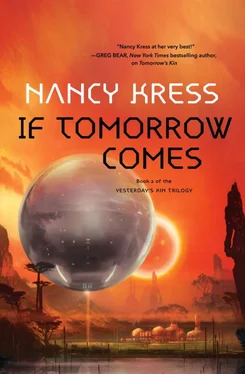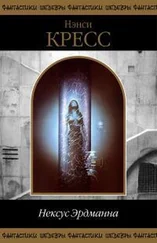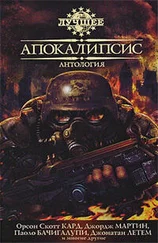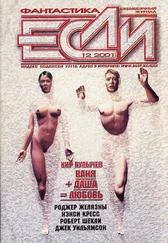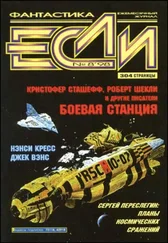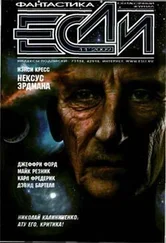“But what if no people are left to press that button, which is the situation on the colony ship now? You don’t just want to abandon an expensive thing like a starship. So you build and leave behind an unbreakable call-back device. This.”
He put his hand on it, and Marianne suppressed her impatience. Everyone here already knew this. Branch had a careful, linear mind, touching all bases, a good thing in a researcher, but—
“With your call-back device,” Branch finally continued, “you build in a code to use it, because even if the device can’t be damaged by anything short of a nuclear bomb, it can be stolen. Remember, you don’t know how the stone-age people you’re leaving all this with—you don’t know how they’re going to develop, what kind of society they’ll create. The device could be stolen, misused by terrorists, lost for millennia—which it was. Applying the code has to be intuitively obvious—just press the right bumps in the right sequence. The code itself can’t be too simple or it might accidentally be set off by, say, rocks falling on it. But the code might be lost or misremembered. So although complex, it has to be something that could be figured out by a society advanced enough to build the ships in the first place. A sequence of numbers that is basic to the universe.
“So what do you use?
“Not every single possible combination of pressing all sixteen bumps. That would be 20,922,789,888,000 possible sequences, and then only if the device is activated by a sequence using all sixteen bumps. At two seconds per trial, running them all would take over five million years. And the correct sequence might not even require all sixteen bumps. Is everybody with me so far?”
Marianne nodded. Branch waited until the low murmur of translation caught up.
“You can’t use constants from physics, either, like the speed of light or Hudspeth’s constant because they depend on units—meters, kilograms, joules, seconds—and there is no telling what units your stone-age society will develop if it ever builds starships.
“So you make sure that any ship still capable of being recalled sends its own code. That’s what I think is coming from the ship… listen.”
They had all heard this, but Branch played it again anyway from his receiver: one tone, pause, six tones, pause, eleven tones, pause, sixteen tones, pause, nine tones, pause, fourteen tones, pause, three tones, pause, eight tones, very long pause, one tone. Long silence before repeating.
“So the problem is to translate that bunch of numbers into some sequence of pressing bumps on the call-back device. You can’t just press the numbers from the ship onto the pyramid because how do you know where to start? And there are still millions of possible combinations. No good. I think the transmitted numbers are supposed to be the key to the actual code to press. But the sequence doesn’t match any mathematical sequence—not primes or Fibonacci or anything else I can come up with. It might be based on some common, indisputable number like the days in a Kindred year, but I can’t make anything like that work, either. Yet the sequence has to be something known to the Kindred who will build these ships. I just don’t know what!”
Salah said, “Branch, it seems to me you’ve made a lot of assumptions here. Three of those tones are in two digits—eleven, fourteen, sixteen—and you don’t know that the numbers are even in base ten. The ‘master aliens’ might count in base six or base twelve—why assume they use base ten?”
“Because humans do,” Branch said, wiggling his fingers, “and they gave the code to humans.”
“Why assume the tones implies another number to press?”
“I told you. There has to be a way to narrow the possibilities and this is the most logical.”
“Why assume the transmission from the ship is a call-back code at all? It could be a Mayday call for help or—”
“Because I fucking have to assume something!” Branch flared.
They were all so tired, Marianne thought: tired of tension, tired of violence, tired of not succeeding at anything. Tired of this planet.
Branch got himself under control. “Look, the universe runs on mathematics. It’s the only shared language across all advanced cultures, all sciences. The transmitted numbers have to mean something.”
“You did a good job,” Isabelle said. “Look, let’s sleep on it. Maybe someone will come up with something.”
Branch looked at her, his eyes pleading. He was so young. Approval still mattered to him as much, or more, than survival.
Isabelle repeated, “You did a good job.”
* * *
Leo woke and, without thinking, groped for the sidearm he had insisted on keeping on his pallet. It wasn’t there. He bellowed, “Hey! Somebody!” and Kandiss came into the room. The big Ranger, in full kit, loomed over the pallet, his face blank.
The two men stared at each other. If Kandiss was going to kill him, there was nothing Leo could do about it. He said, “Give me back my weapons.”
Kandiss ignored that. “I buried him.”
Owen. Of course Kandiss had retrieved and buried the body. Leo said, “Zoe told you what happened.”
“I want to hear it from you.”
Leo told him. He couldn’t tell if Kandiss believed him, or even heard him. Kandiss never blinked; his face never twitched. When Leo finished, he repeated, “Give me my weapons.”
Then Kandiss did react. “I don’t have them.”
It took Leo a moment to absorb this. He let out a string of curses worthy of Zoe. “Find my weapons and bring them here.”
“Yes, sir,” Kandiss said.
Sir. Leo was now the ranking soldier on Kindred, the CO. Christ on a cracker. Leadership was exactly what he didn’t want, what he’d dropped out of Ranger School to avoid. Although somehow he seemed to have been exercising more of it despite himself: making decisions, recruiting locals, shooting his CO.
A sharp pain in his heart, which Leo ignored because he had no choice.
Before Kandiss could return, Salah Bourgiba came in. “How are you feeling, Brodie?”
“Just dandy. Never better. Austin and Zoe?”
“Both will recover.”
“Did Isabelle take my weapons?”
Bourgiba’s brows rose; evidently this was news to him, too. “Isabelle?”
“Send her in here. Jenner, too!” Then, remembering who he was talking to, he added a grudging, “Please.”
Bourgiba left without a word, but Leo didn’t need words. Looks were enough. Bourgiba disliked him as much as he disliked Bourgiba.
Leo tried to stand up, couldn’t, and sank back onto his pallet. He was as useless as a toddler. Kandiss returned and said, “Your weapons aren’t in the compound.”
“Where are Lamont’s?”
“I have them.”
“Bring them here, Kandiss. And—What is it? Why do you look like that?”
Kandiss looked away, looked back, bit his tongue. For Kandiss, this amounted to major drama. He said, “Sir, Lieutenant Lamont had a nonregulation weapon on his person.”
“He did? What?”
“I’ll bring it.”
He returned with Lamont’s rifle, sidearm, helmet, all of it. And something else. Leo picked it up: a metal canister about six inches long and three in diameter, marked only with the code A45D6. Plus a device about a foot long. Leo said, “What is it?”
“Don’t know.”
“Is it… this looks like a mounter that might fit onto a rifle. Is this canister some sort of explosive? Can Zoe come in here?”
“Doc says no.”
“Then I’ll go to her. Help me up.”
Torture getting to his feet, torture walking even with Kandiss’s support. Leo ignored the pain and hoped that motion wasn’t tearing apart anything important inside him. Zoe lay on a platform bed in the next room. She stared at him stonily.
Читать дальше
